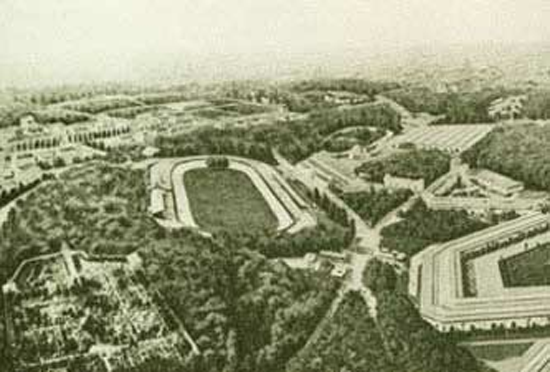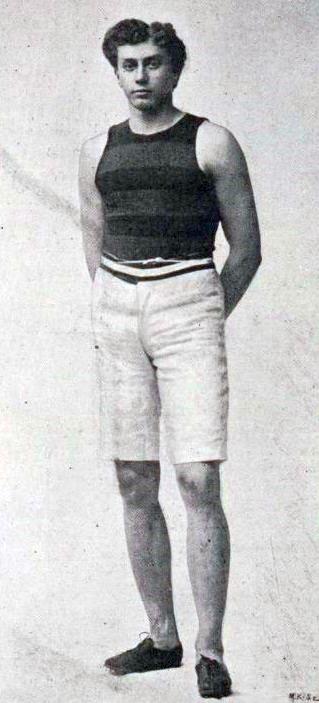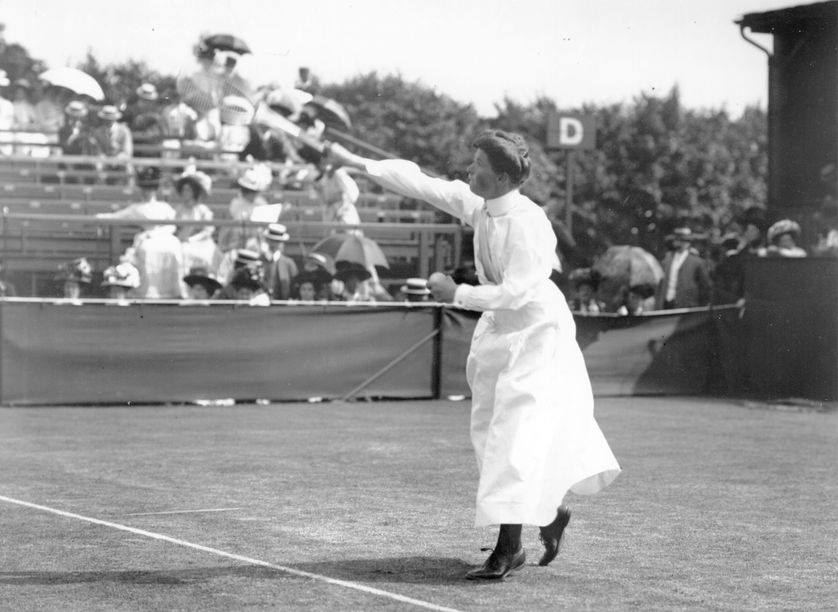Paris, which will host the XXIII Summer Games in 2024 has twice before hosted the Summer Olympics in 1900 (the second Games) and again in 1924 (the Games of the VIII Olympiad). I think it would be fair to say that most Americans had little knowledge of either of those Games but became considerably more familiar with the 1924 Games beginning on 25 September 1981 and peaking on 29 March 1982. Some of you might know why the change happened and some may not. Rest assured I’ll detail the reason when I write about the 1924 Games. I will say that I believe there’s an even better and much more preposterous story to arise from the 1924 Games than the one that came to prominence in that 1981-1982 time frame but first let’s look at what happened in 1900.
What if they held an Olympics and nobody knew?
After what happened in Paris in 1900, it’s a wonder why the athletic movers and shakers in Saint Louis were quite so keen to host the Games in 1904. As would happen in Saint Louis four years later the 1900 Games were held in conjunction with the World’s Fair.
[Image of Paris 1900 – Wikimedia Commons – Public Domain.]
As would not happen in Saint Louis four years later, few if any of the events, were officially called the Olympic Games. Here’s how that came to be.
After a bit of a power struggle between Baron Pierre de Coubertin, the founder of the modern Olympic movement and Alfred Picard the director of the Exposition Universelle, de Coubertin ceded control of the athletic events to Picard who replaced Olympic Games with the description Concours internationaux d’exercices physiques et de sport (International competitions in physical exercise and sport).
The Expo began on 14 April 1900 and closed on 12 November. According to the official IOC website, the 1900 Olympics consisted of 95 events in 20 disciplines beginning with fencing on 14 May and ending with the Rugby Union tournament that ran for two weeks beginning 14 October. Most of the winners received cups or trophies and the press reported them using the descriptions “International Championships”, “International Games”, “Paris Championships”, “World Championships” and “Grand Prix of the Paris Exposition” but rarely Olympics.
In fact, according to the Encyclopedia Britannica,
The Games suffered from poor organization and marketing, with events conducted over a period of five months in venues that often were inadequate. The track-and-field events were held on a grass field that was uneven and often wet. Broken telephone poles were used to make hurdles, and hammer throwers occasionally found their efforts stuck in a tree. The swimming events were contested in the Seine River, whose strong current carried athletes to unrealistically fast times. There was such confusion about schedules that few spectators or journalists were present at the events. Officials and athletes often were unaware that they were participating in the Olympics.
There was no opening or closing Ceremony but there was a parade of gymnasts in the “Vélodrome de Vincennes” during the Federal Meeting of the Union of Gymnastics Associations of France on 3 June.
[Aerial photo from noupe.com.]
De Coubertin later told friends, “It’s a miracle that the Olympic Movement survived that celebration.”
Some of the winners.
Perhaps the biggest winner was American Alvin Kraenzlein who set a record that stands to this day. He won
[Kraenzlein photo from Wikimedia Commons – Public Domain.]
gold medals in the 60 meters (the distance was withdrawn from Olympic competition after the 1904 Olympics), the 110 meter hurdles, the 200 meter hurdles, and the long jump and he is the only person to win four individual gold medals in athletics (aka Track and Field) at a single Olympic Games. At least one report says that Kraenzlein also won a punch in the face from fellow American Myer Prinstein. Prinstein led the long jump competition going into the final jumps which were scheduled for a Sunday. Whether because of his personal religious beliefs or at the behest of officials from Syracuse University which had sponsored his trip, he refused to compete in the final. Kraenzlein won by a centimeter and, if the report is true, Prinstein presented Kraenzlein the prize of a punch in the face.
An American-born woman, Helen Barbey, who married a Swiss gentleman named Hermann Alexander, Count von Pourtalès thereby becoming Hélène de Pourtalès, became the first female Olympic champion together with her husband and nephew Bernard as part of the Swiss winning team in the 1-2 ton sailing event.
The first female to win an individual gold medal was Charlotte Cooper of the United Kingdom. Cooper first won the women’s singles tennis title and followed that by winning the mixed doubles championship with countryman Reginald Doherty.
[Photo of Charlotte Cooper from Facebook – Public Domain.]
In the coxed pairs and coxed eight rowing events, several crews replaced their adult coxswains with children and on 26 August, a pairs team from the Netherlands chose a French boy apparently at random and rowed to a close win claiming the trophy. Pictured below with the Dutch team in the victory ceremony the boy quickly disappeared and remains unidentified. He is likely the youngest Olympic champion.
[Photo from Wikiwand – Public Domain.]
The 1900 Games had a distinct lack of nationalism. Athletes from different nations competed on the same team in doubles tennis, football, polo, rowing, and tug of war.
The marathon, although not as bizarre as the subsequent one in Saint Louis, was definitely contentious. The poorly marked course began and ended in the Bois de Boulogne.
[From Google Maps.]
The course was supposed to follow the old city wall (a part of which stood just a few meters from the flat Patricia and I had rented). As was the case in Saint Louis, there were sections of the course where the runners had to contend with distractions from cars, bicycles, pedestrians and animals. One American runner, Richard Grant, claimed he was run down by a cyclist as he began to challenge French runners for the lead. In total, three Americans cried foul pointing to the fact that both the Belgian winner Michel Théato and the French runner-up Emile Champion, who were the only competitors with no mud on their clothes, had obviously taken short cuts. The official IOC site still lists Théato as the winner.
Next, some stories from 1924.





